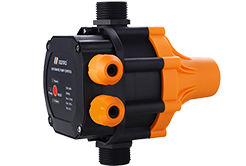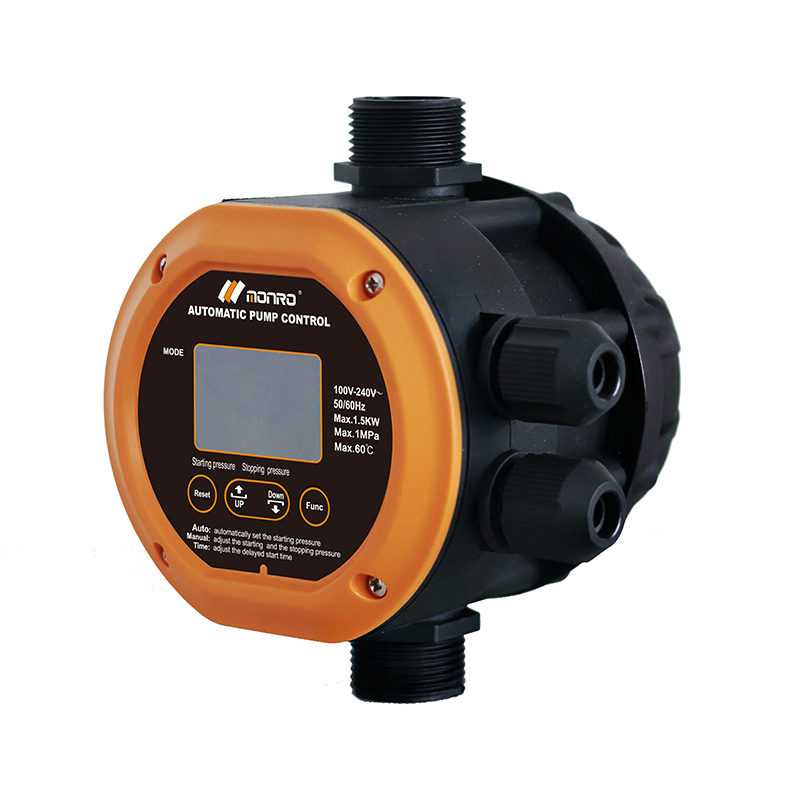Don't hesitate to send a message
Web Menu
Product Search
Exit Menu
Pressure Control Systems for Pump and Compressor Applications Enhancing Efficiency
Pressure control systems play a pivotal role in regulating the flow and pressure of fluids and gases in various industrial, commercial, and residential settings.
Pressure control systems are essential components in fluid handling and pneumatic applications, where maintaining precise pressure levels is critical for operational efficiency and equipment longevity. These systems utilize advanced control algorithms and sensors to monitor and adjust pressure levels in real-time, ensuring good performance and safety.
Pressure Booster Pump Controller: Enhancing Water Pressure
A Pressure Booster Pump Controller is specifically designed to regulate the pressure of water in residential, commercial, and industrial settings. It works in conjunction with booster pumps to increase water pressure, ensuring adequate flow rates and consistent pressure throughout the system.
The Pressure Booster Pump Controller monitors the pressure of incoming water and activates the booster pump when pressure drops below a predefined threshold. Once the desired pressure level is achieved, the controller modulates the pump speed or switches it off to maintain good pressure without over pressurizing the system.
In residential applications, Pressure Booster Pump Controllers are commonly used to improve water pressure in homes with low-pressure municipal water supplies or in properties with multiple floors. In commercial and industrial settings, these controllers ensure efficient water distribution for various processes, including irrigation, firefighting, and manufacturing.
Pressure Controller for Air Compressor: Optimizing Pneumatic Systems
A Pressure Controller for Air Compressors is designed to regulate the pressure of compressed air in pneumatic systems. Compressed air is widely used in industries such as manufacturing, automotive, and construction for powering pneumatic tools, machinery, and control systems.
The Pressure Controller for Air Compressors monitors the air pressure within the system and adjusts the compressor's operation to maintain the desired pressure level. It controls parameters such as compressor speed, air intake, and discharge pressure to ensure consistent and reliable performance.
By maintaining good air pressure, the Pressure Controller for Air Compressors helps prevent equipment damage, minimize energy consumption, and improve overall system efficiency. It also facilitates precise control of pneumatic processes, enhancing productivity and quality in industrial applications.
These advanced systems enable operators to monitor performance metrics, diagnose issues remotely, and optimize system settings for maximum efficiency. By leveraging real-time data and analytics, organizations can proactively identify potential problems, schedule maintenance activities, and minimize downtime.
Pressure control systems play a crucial role in optimizing performance, efficiency, and safety in pump and compressor applications. Pressure Booster Pump Controllers and Pressure Controllers for Air Compressors ensure precise pressure regulation, enhancing the reliability and longevity of water distribution and pneumatic systems.
By investing in advanced pressure control technology and adopting proactive maintenance practices, organizations can improve productivity, reduce energy consumption, and enhance operational resilience in diverse industrial, commercial, and residential environments.
In addition to their primary functions, Pressure Booster Pump Controllers and Pressure Controllers for Air Compressors contribute to sustainability efforts by optimizing resource utilization and reducing energy waste. By precisely regulating pressure levels, these systems minimize unnecessary energy consumption, resulting in cost savings and environmental benefits.
Moreover, their integration with smart control technologies enables real-time monitoring and adaptive adjustments, further enhancing efficiency and reducing carbon footprint. As industries and communities prioritize sustainability.
-
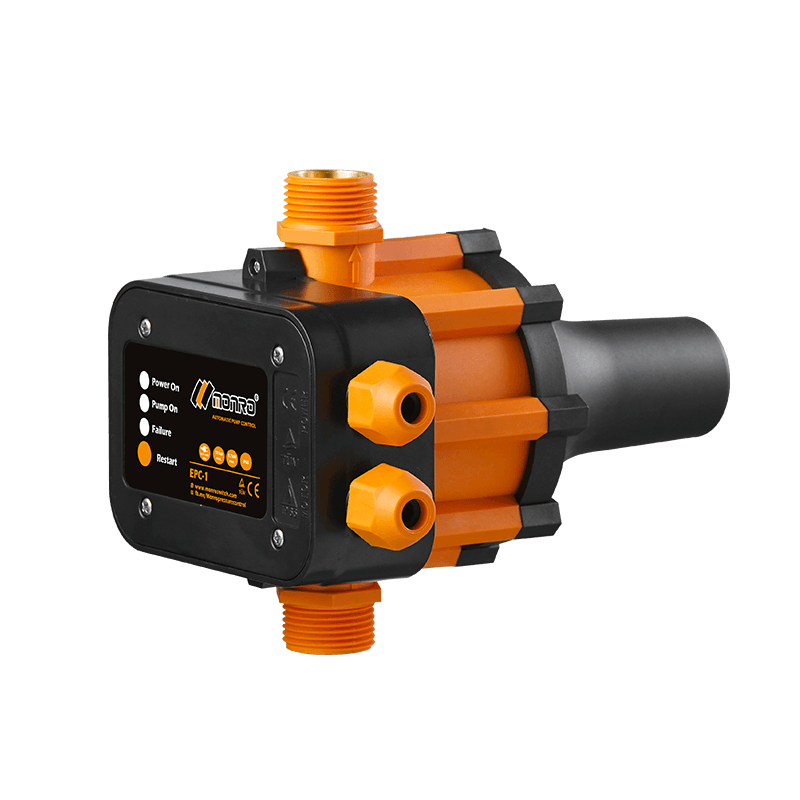 EPC-1
EPC-1Monro EPC-1 model pump controller is the classic and basic type, was loved by user in the global mar...
-
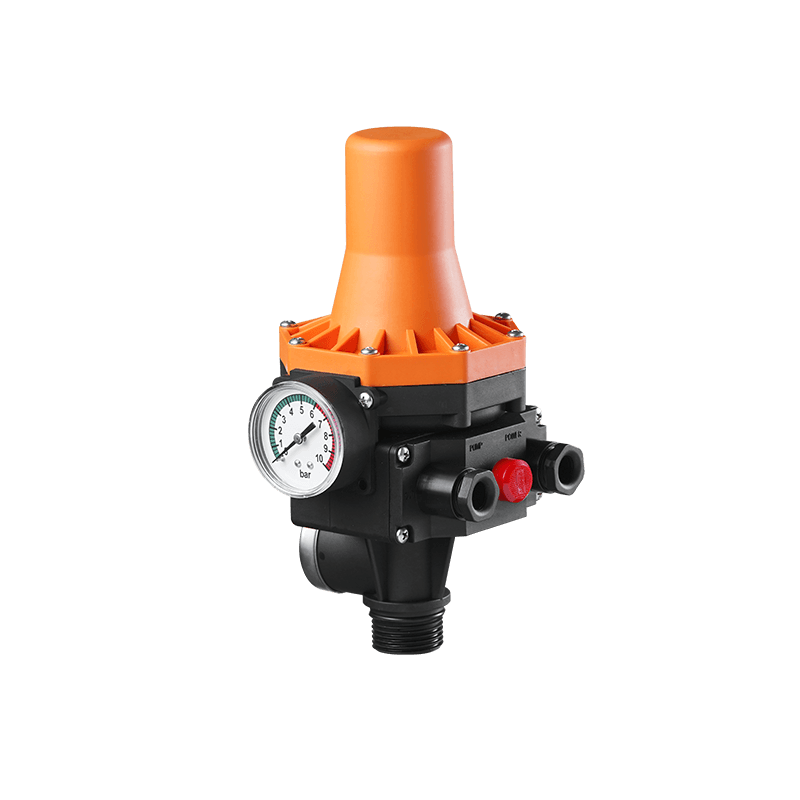 EPC-3
EPC-3Monro EPC-3 spain design auto on and off press control, an intelligent and economical system designe...
-
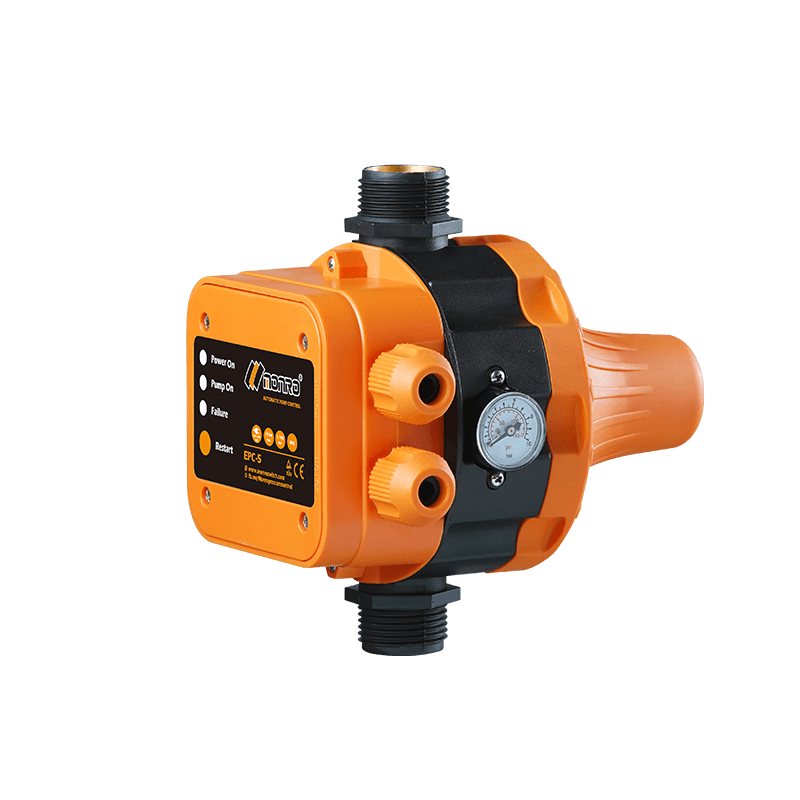 EPC-5
EPC-5Monro EPC-5 model automatic pump control, a device which assembled on the water pump (recommended si...
-
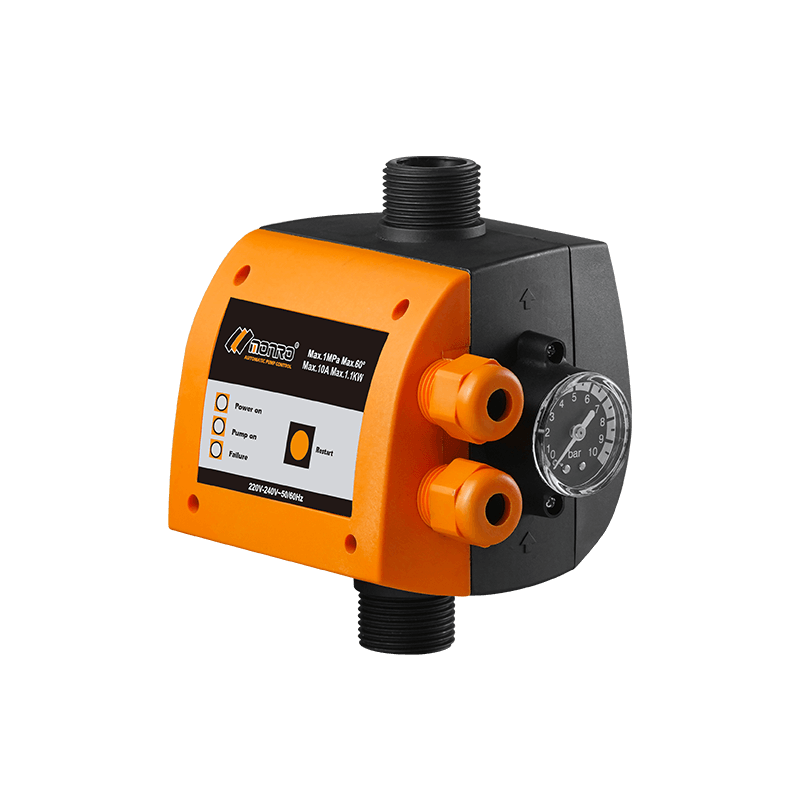 EPC-9
EPC-9Monro EPC-9 model pressure controller, is a big power device for automatic control and protection of...
-
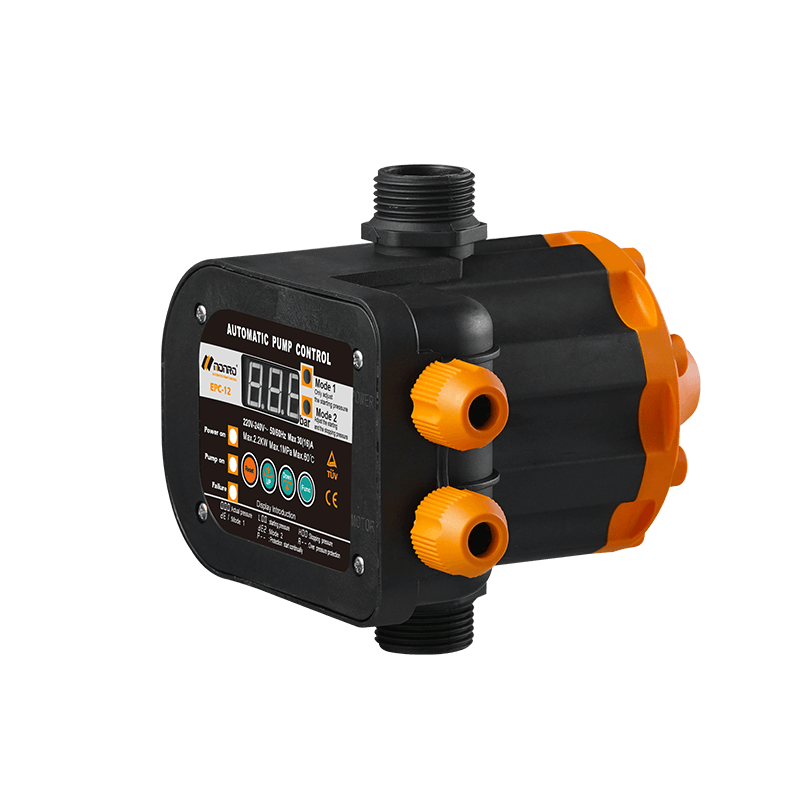 EPC-12
EPC-12Monro EPC-12 smart top-level automatic pump control is a multi-function model combined with traditio...
-
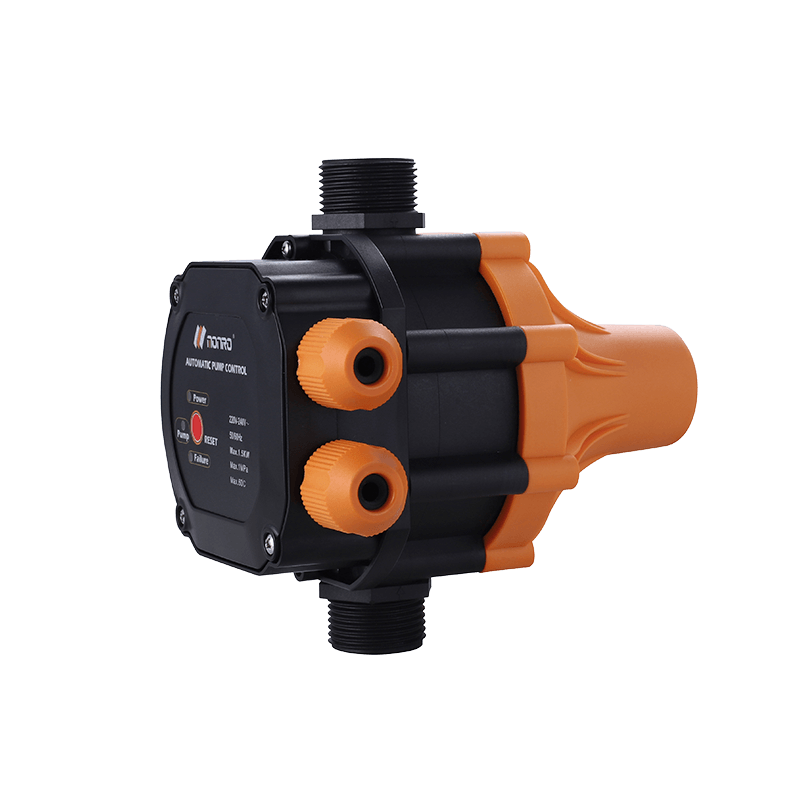 EPC-14
EPC-14Monro EPC-14 model pressure control is a big power device for automatic control and protection of el...
-
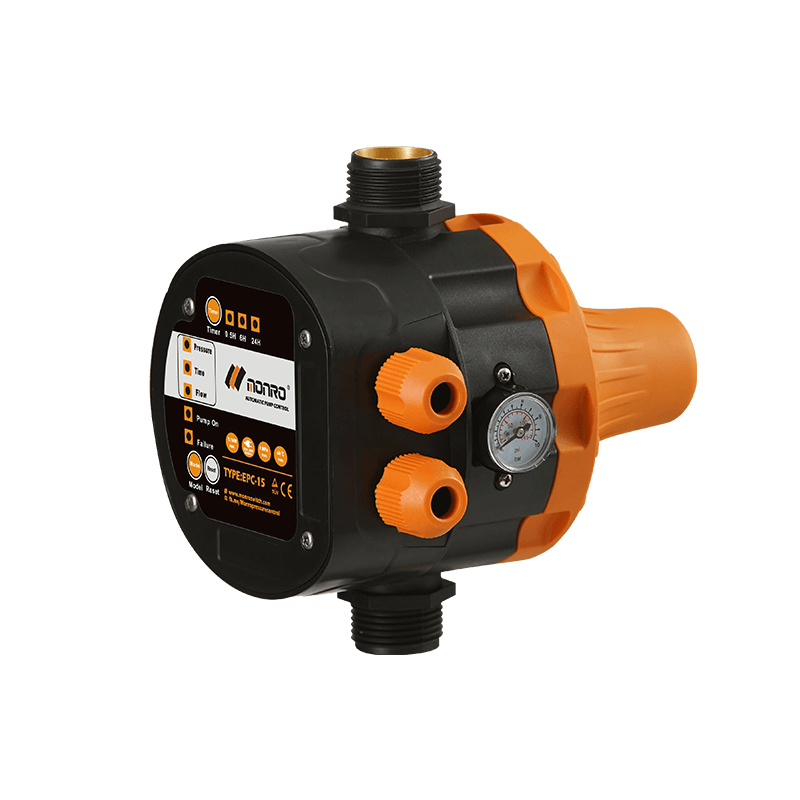 EPC-15
EPC-15Monro EPC-15 model automatic pump control, a device which assembled on the water pump (recommended s...
-
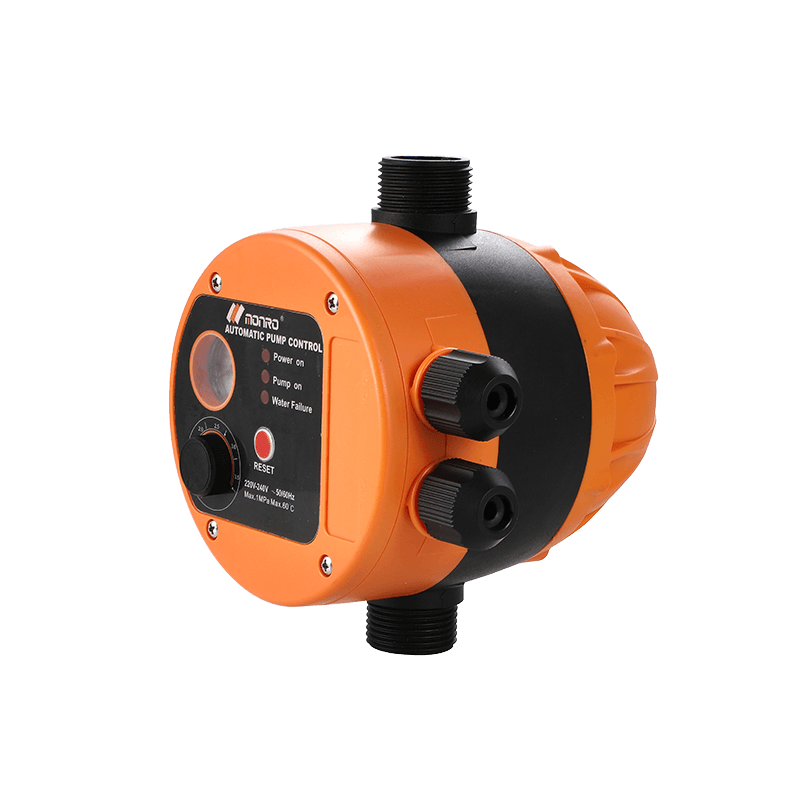 EPC-16
EPC-16EPC-16 is the new patent pump controller by Monro. Its key highlight is tooless (manual knob) start...
find our office
Committed to providing professional pressure control solutions for various types of water pumps and air compressors.

 简体中文
简体中文 English
English Español
Español